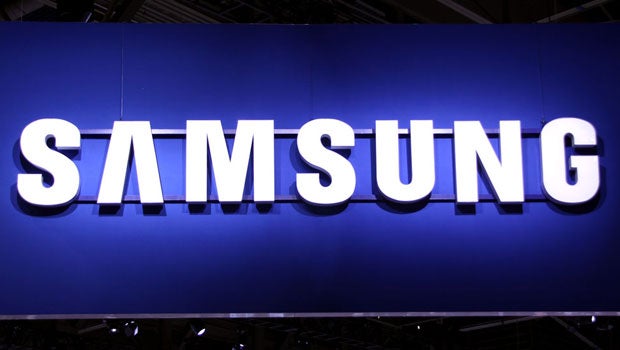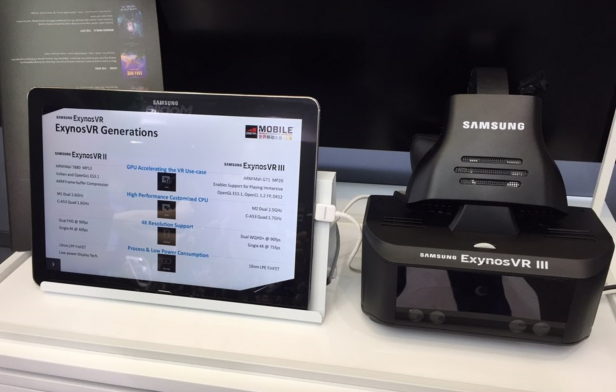Has Samsung’s standalone Exynos VR headset quietly leaked?

Samsung has been said to be working on a standalone VR headset for some time, with numerous rumours doing the rounds.
The company already makes the Gear VR, which essentially turns a number of Samsung handsets into VR headsets, but we’re yet to see anything concrete when it comes to a standalone device that doesn’t rely on a phone.
Now, a company called Visual Camp, which develops eye-tracking tech, has provided us with what could be our first look at the headset.
Related: Gear VR
It seems the device is powered by one of Sammy’s own Exynos processors, hence the reported name “Exynos VR”, and is said to feature Visual Camp’s eye-tracking technology.
The report states the latest version of the headset is known as the Exynos VR III, and according to one photo of the headset alongside a tablet listing the specs, comes packing a 10nm hexa-core chip with two Samsung M2 CPU cores clocked at 2.5 GHz and four ARM Cortex-A53 CPU cores clocked at 1.7 GHz.

There’s also ARM Mali G71 MP20 graphics, and dual WQHD+ displays with a 90fps refresh rate. or a single 4K screen with a 75fps rate.
Visual Camp’s eye-tracking technology means the headset should make use of ‘foveated rendering’, which means it will only fully render what the user is looking at.
Other areas of the virtual environment will be rendered with reduced resolution, which will save system resources and cut down on heat build-up and component wear.
What’s more, the headset is said to support “hand tracking, voice recognition, and facial expression recognition.”
Samsung, which is yet to comment on the headset in question, has been working on various virtual reality technologies in recent years.
A report earlier this year, from the Korea Herald cited a source privy to a private Samsung meeting at MWC 2017, as claiming the firm showed off a new Gear VR with an upgraded pixel-per-inch density.
As the source stated in the new report: “They showcased VR headsets with 1,200 PPI (pixels of per inch). Considering the technology completion, a headset with 1,500 PPI is soon expected to be unveiled.”
That bodes well for a new headset that doesn’t rely on a phone to work, as the current Gear VR devices use smartphone screens to render the virtual world.
Would you like to see an all-in-one headset from Samsung? Let us know in the comments.

